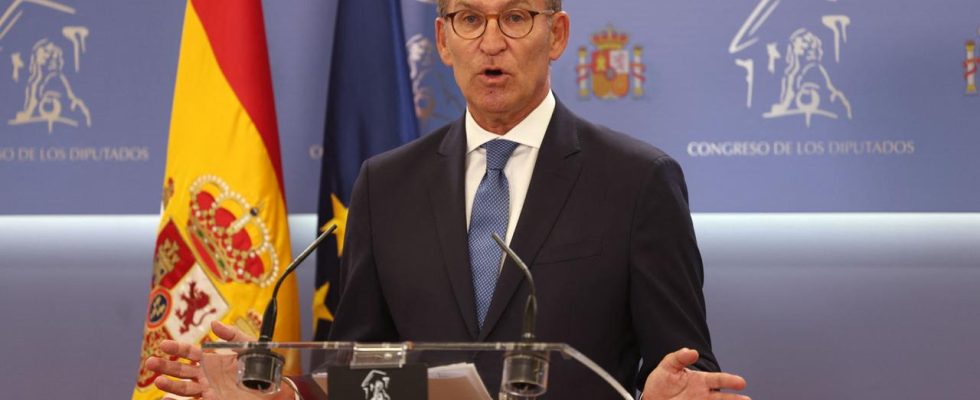The Spanish King Felipe VI. has made a decision: the conservative opposition leader Feijóo should form a new government. However, he has so far lacked the necessary majorities and supporters.
One month after the early parliamentary elections in Spain, King Felipe VI. tasked conservative opposition leader Alberto Núñez Feijóo with forming a new government. However, the prospects for Prime Minister Pedro Sánchez’s biggest competitor to forge a government alliance with a majority are considered extremely poor.
King Felipe VI. discussed with the party leaders and has now made his decision, said the President of the Spanish House of Commons, Francina Armengol. Now Feijóo has to face a vote in parliament – but a date is still open and can be scheduled for the beginning of next week at the earliest.
In order to be confirmed as the new head of government, Feijóo would need an absolute majority in the first round of the parliamentary vote – i.e. at least 176 votes out of a total of 350 MPs. Should there be a second round of voting, a simple majority would suffice.
An election victory, but no majority
In the parliamentary elections on July 23, Feiijóo’s conservative People’s Party (PP) won the election with 137 seats in parliament, but fell short of expectations.
The previous head of government, Pedro Sánchez, came second with his socialist PSOE. The newly founded electoral alliance Sumar, the new partner of the PSOE, took fourth place with 31 seats. And the right-wing populist Vox ended up losing 33 seats.
Parties refuse to cooperate with right-wing populists away
The right-wing populists are the possible coalition partner of Feijóo and his PP. The opposition leader himself had considered cooperation ahead of the parliamentary elections. But such a merger could also become a problem, because all other parties refuse to cooperate with Vox. However, since the merger of PP and Vox would not result in a government majority either, the duo would be dependent on the support or at least the toleration of smaller parties.
Should Feijjóo fail in the vote in the lower house, Sánchez would in all likelihood face the election of the deputies. However, the incumbent Prime Minister also faces hurdles: in addition to the votes of the left-wing alliance Sumar and several smaller regional parties, Sánchez also needs an agreement with the Junts party of the exiled Catalan separatist leader Carles Puigdemont. Junts, however, have so far called for an independence referendum, which Sánchez is likely to reject.

